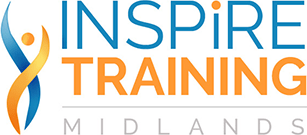
Listening is an essential skill for building strong relationships, fostering understanding, and navigating the complexities of communication. However, many of us struggle with truly listening to others. Various obstacles, such as assumptions, biases, the need for control, distractions, and ego, can hinder our ability to fully engage in conversations.
In this blog, we will explore these common barriers to effective listening and provide practical solutions to overcome them. By recognising and addressing these challenges, you can improve your listening skills, enhance your relationships, and ensure that others feel heard and valued.
Here is the ABCDE of why listening is so hard and what you can do to become a better listener.
Assumptions
You think you know what person is going to say so don’t listen or interrupt to fill in gaps.
Solution:
Listen with an open mind. Instead of predicting what someone will say, approach each conversation as if you’re hearing it for the first time. Practice active listening by paraphrasing what the person has said to ensure you’ve understood them correctly. This not only prevents you from jumping to conclusions but also shows the speaker that you’re genuinely engaged.
Bias
You let person’s outward appearance or opinions or your beliefs block you from truly hearing what is said.
Solution:
Don’t focus on any one thought or emotion that you have. Recognise your biases by reflecting on your initial reactions. Ask yourself if you’re dismissing the person’s perspective due to their appearance or differing views. To counter this, try to focus on the content of their message rather than your preconceived notions. Engage in conversations with the goal of understanding rather than judging.
Control
You feel need to interrupt, rush, and/or correct what person is saying.
Solution:
Listen with your heart as well as your ears, remembering the importance of a relationship. Maintain relaxed, non-hurried posture that communicates that their agenda is important to you. To overcome the need to control the conversation, remind yourself of the value in hearing others out. Adopt a posture that conveys openness, such as leaning slightly forward and maintaining a relaxed demeanour. Use non-verbal cues, like nodding, to show you’re engaged. This will not only improve the quality of the interaction but also strengthen your relationship with the speaker.
Distraction
You lose attentiveness because you think faster than they speak, so you start thinking about what you are going to say next.
Solution:
Stay in the moment, hang onto every word. Refrain from planning ahead about what you will say. Maintain eye contact, which will help you keep focused on the person and communicate that you’re with them. Combat distractions by practicing mindfulness. Before the conversation, take a few deep breaths to centre yourself. During the conversation, if your mind starts to wander, bring your focus back by mentally repeating the speaker’s words. Maintaining eye contact and providing verbal affirmations like “I see” or “That’s interesting” can help keep you grounded in the present.
Ego
You put your own neediness to be focus of attention before other person.
Solution:
Work at respecting and valuing the other person. Learn to love your neighbour as yourself. Set aside your desire to be the centre of attention by genuinely valuing the other person’s perspective. Remind yourself that listening is not about waiting for your turn to speak but about connecting with the other person. Practicing empathy can also help. Put yourself in their shoes and try to understand their feelings and motivations. This shift in focus from yourself to the speaker can greatly improve the quality of your listening.
Conclusion
Listening is more than just hearing words; it’s about truly understanding and connecting with the people around us. By overcoming these common barriers of assumptions, bias, control, distraction, and ego, we can enhance our listening skills and build stronger, more meaningful relationships. Remember, effective listening is a skill that requires practice and intention.
Call to Action: I encourage you to start by reflecting on your own listening habits. Choose one area to work on this week, whether it’s keeping an open mind, staying in the moment, or setting aside your ego. Small changes can make a big difference.
Do share your experiences or challenges by emailing me at [email protected] —I’d love to hear how these strategies work for you!
Image credit: Gerd Altmann from Pixabay


Blog